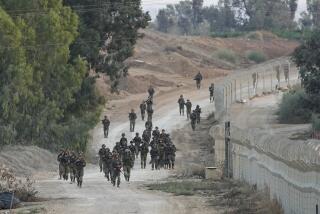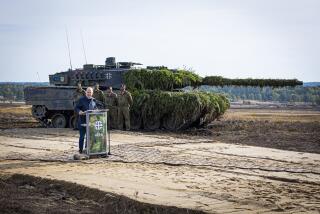Revisit the Deterrence Question
Critics of the war in Iraq are now questioning whether the Bush administration intentionally distorted the threat of weapons of mass destruction. They maintain that the failure to find WMD undermines President Bush’s rationale for toppling Saddam Hussein. In fact, finding WMD would be even more damaging to the administration’s case for the war.
Nuclear weapons were the greatest potential danger, but information available before the war strongly suggested that Iraq lacked an advanced program. If it turns out that Iraq also did not have substantial chemical and biological weapons programs, very serious questions about the quality of American intelligence capabilities would arise and the United States’ international reputation would be seriously damaged.
Another question, however, is at least as important and has been largely overlooked. If Hussein had WMD, as the Bush administration remains confident was the case, why did Iraq not use these weapons? An obvious answer is that Hussein was deterred from using them. If so, then the case for invading Iraq essentially falls apart.
Some critics of the administration did not question whether Iraq possessed chemical and biological weapons. But if Hussein could be deterred, as many opponents of the war believed, then the war was unnecessary. A dedicated policy designed to deter attacks on Iraq’s neighbors would have sufficed to protect the region. A combination of U.S. conventional forces deployed in the region, backed up by the full array of American forces deployed at home and around the globe and by clear commitments to oppose Iraqi aggression, would have worked.
If Hussein was deterred from escalating to the use of WMD when the U.S. was invading his country, then he could have been deterred with still higher confidence in virtually any other scenario.
Invasion eliminated most of the incentives for Iraq not to escalate because the U.S. already was imposing extremely high costs. Hussein had little left to lose, so why not use weapons of mass destruction in the hope that it would weaken American military capabilities, or be so startling that it would undermine U.S. resolve? Even if likely to fail, why not give it a try?
One possibility is that Hussein was sensitive to the greater damage that might be inflicted on his country. If so, he could be deterred according to standard deterrence logic.
If this was not the reason, then Hussein’s nonuse of his WMD is more of a puzzle. Given that the United States was trying to kill him and was clearly going to overthrow him, maybe deterrence is not the reason that he did not escalate.
Hussein almost certainly could have used his WMD if he wanted to -- Iraq had months to prepare for the coming U.S. invasion, and there have been no reports that American forces destroyed any. One possibility is that Iraq hid its WMD from U.N. weapons inspectors and was unable to redeploy them between the time that the inspectors left and the time the war began. This, however, seems unlikely because it took U.S. ground forces more than 10 days to get within range of Baghdad.
Another possibility is that Hussein saw no value in using his WMD because he did not believe they were militarily useful or because he was not bent on inflicting large-scale revenge. In these cases, he did not need to be deterred and therefore his WMD did not pose a great danger.
Of course, no one could be certain before the war that Hussein would not use his WMD (assuming he had them). Nevertheless, it is important that we not overlook this perspective.
The central argument against the war was that Hussein could be deterred. Either that argument now gains weight or serious doubts about Hussein’s interest in using WMD must be addressed.
Maybe more important, Hussein’s nonuse of WMD suggests that we need to take a closer look at the general claim that so-called rogue states cannot be deterred. Maybe some states cannot be, but it now appears that the U.S. needs to do a better job of analyzing this thorny question.
Charles L. Glaser is a professor and deputy dean at the Irving B. Harris Graduate School of Public Policy Studies at the University of Chicago, where he co- directs the program on international security policy.
More to Read
Sign up for Essential California
The most important California stories and recommendations in your inbox every morning.
You may occasionally receive promotional content from the Los Angeles Times.










